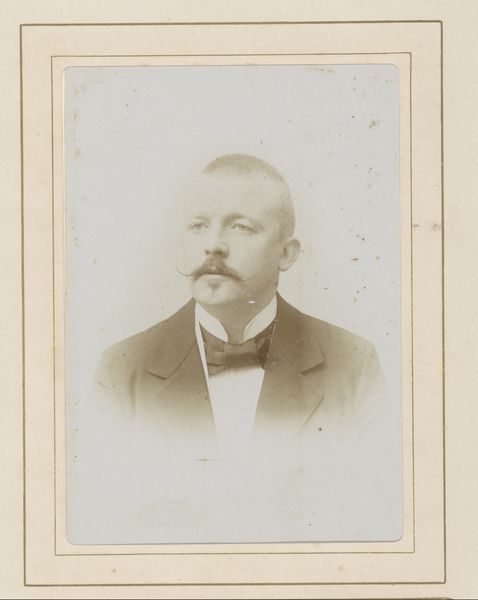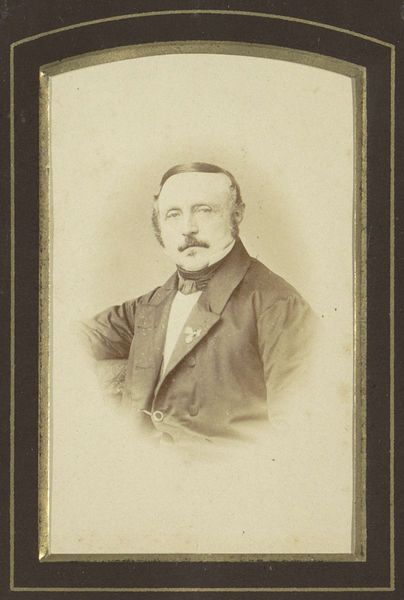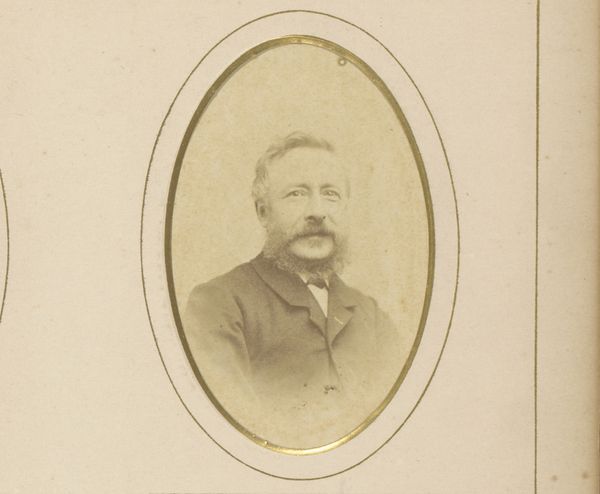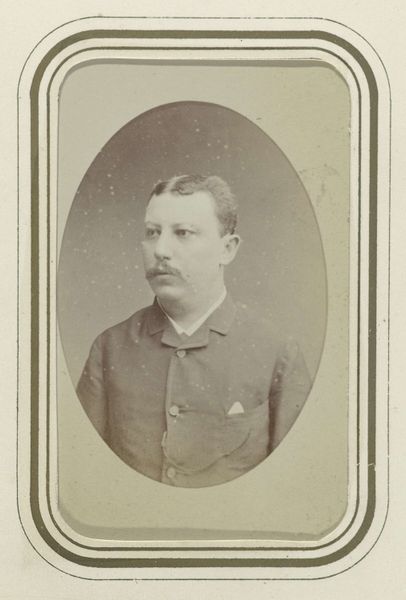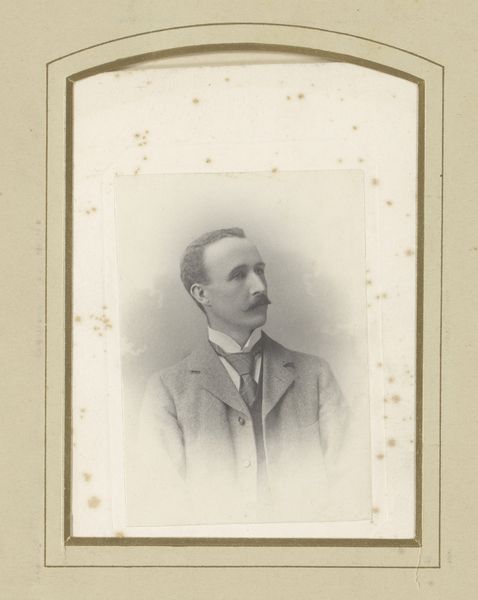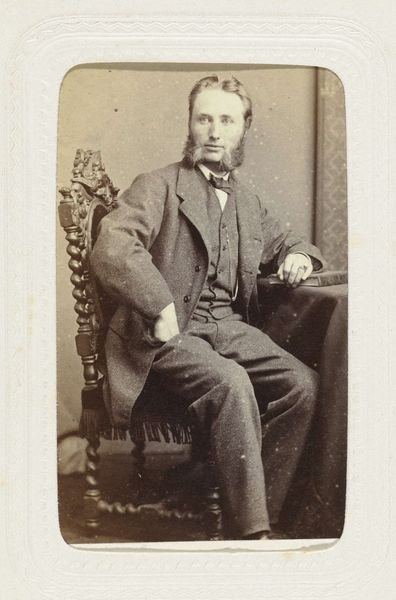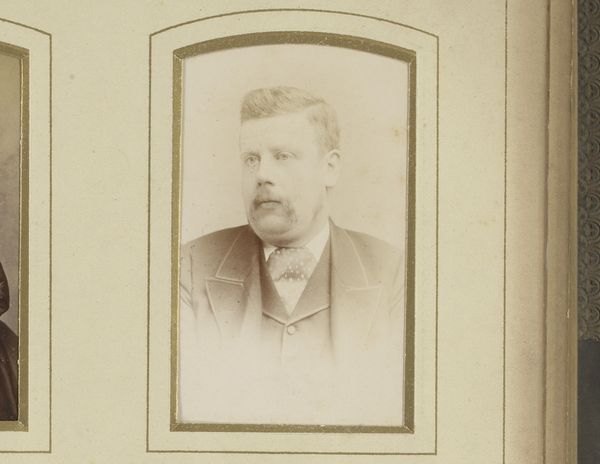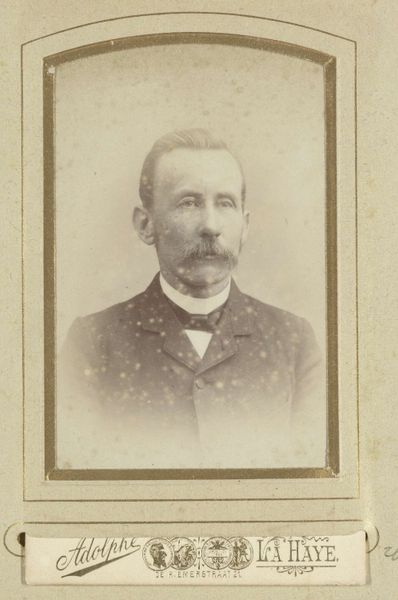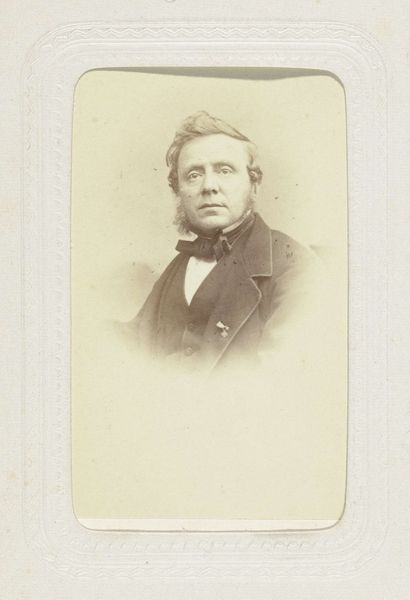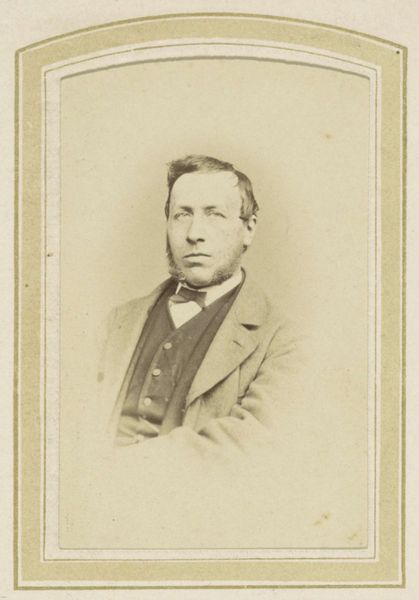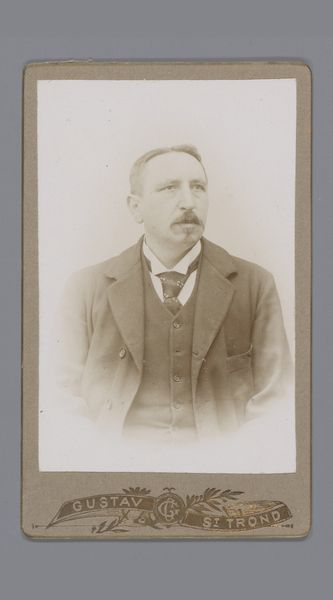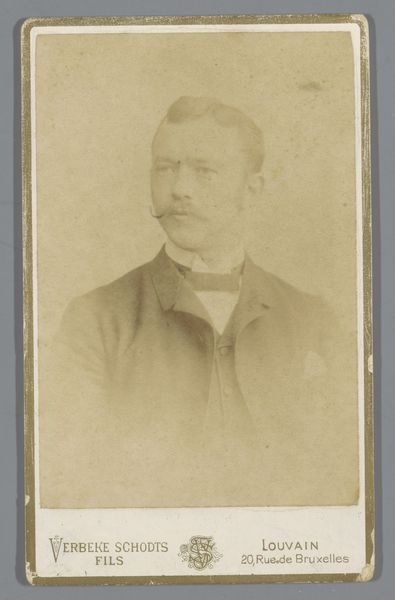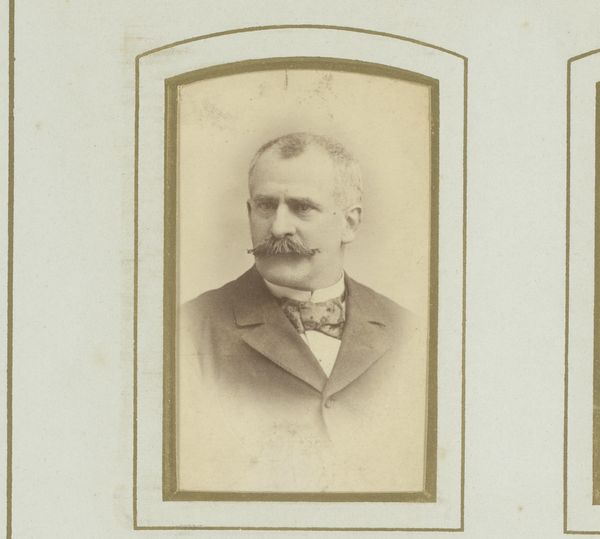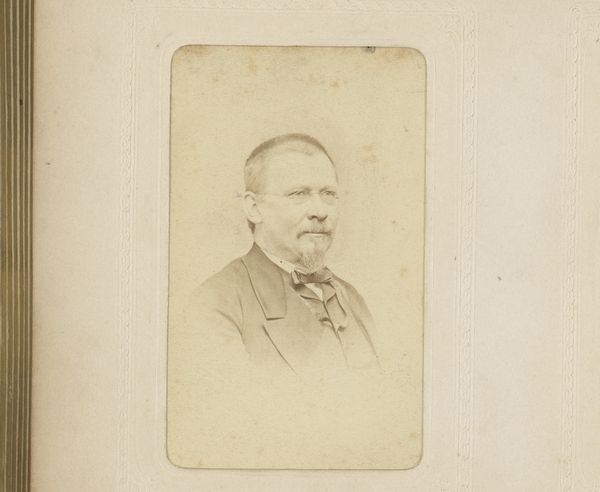![Portret van [(...)] Kruimel by Albert Greiner](/_next/image?url=https%3A%2F%2Fd2w8kbdekdi1gv.cloudfront.net%2FeyJidWNrZXQiOiAiYXJ0ZXJhLWltYWdlcy1idWNrZXQiLCAia2V5IjogImFydHdvcmtzLzUzODZjODMyLWM5MjMtNGQwZi04MTZiLWY2NzhkNTgyZTc3ZC81Mzg2YzgzMi1jOTIzLTRkMGYtODE2Yi1mNjc4ZDU4MmU3N2RfZnVsbC5qcGciLCAiZWRpdHMiOiB7InJlc2l6ZSI6IHsid2lkdGgiOiAxOTIwLCAiaGVpZ2h0IjogMTkyMCwgImZpdCI6ICJpbnNpZGUifX19&w=3840&q=75)
photography, gelatin-silver-print
#
portrait
#
charcoal drawing
#
photography
#
gelatin-silver-print
#
portrait drawing
#
realism
Dimensions: height 102 mm, width 63 mm
Copyright: Rijks Museum: Open Domain
This photographic portrait of [(...)] Kruimel was made by Albert Greiner using a glass negative sometime in the late 19th century. The albumen print process, popular at the time, involved coating paper with egg white and silver nitrate. This process resulted in a smooth, glossy surface, enhancing the tonal range and clarity of the image. It became the standard for photographic prints due to its ability to capture fine details. The final result is a sepia-toned image, a consequence of the chemical reactions during development. But beyond its aesthetic appeal, this photograph is also a product of the burgeoning industrial revolution, tied to the emergence of commercial photography studios. Consider the labor involved, from preparing the chemicals to posing the sitter, to the subsequent printing and mounting. Such portraits democratized image-making, making it accessible to a broader public, even if that required employing different forms of labor. The material of this portrait connects it to broader social issues of labor, politics, and consumption.
Comments
No comments
Be the first to comment and join the conversation on the ultimate creative platform.
